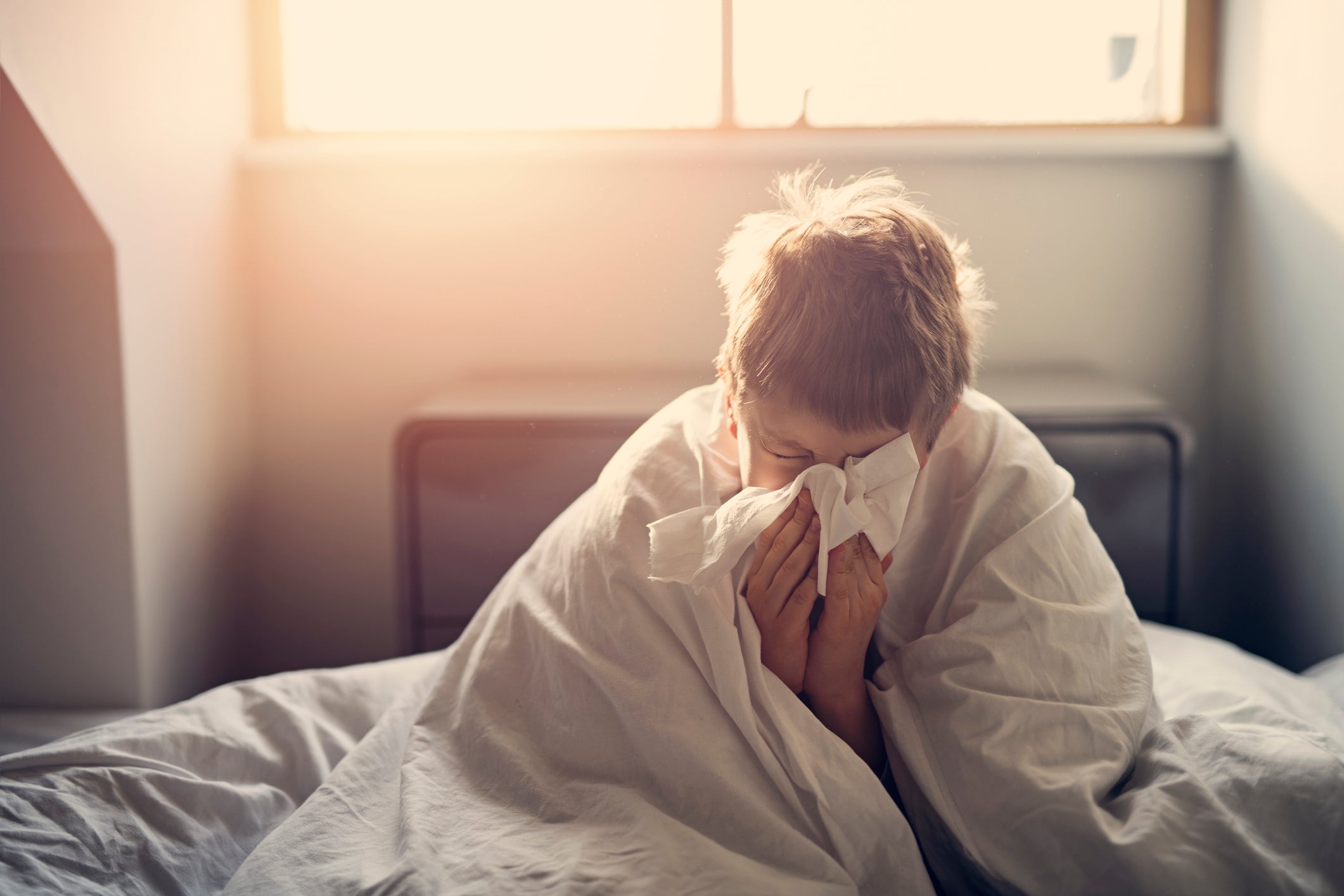Covid has completely changed my approach to parenting a poorly child
Alert for any sign of a raspy throat in his offspring, Will Gore gears up for yet another trip to a PCR testing centre


And so plan B is no more. Down with infections; up with the economy. Masks off; party on!
Who can doubt it is mere coincidence that the easing of restrictions should come at just the moment when the prime minister’s position seems in most peril? And let’s be honest, nobody would wish preventative measures against Covid to be in place any longer than necessary.
But while overall rates of infection have fallen noticeably in the last week or so, there has been a resurgence in case numbers among under-18s in recent days, and particularly among the youngest children. It means that the Covid quandary for parents is far from over.
In the halcyon days before coronavirus, if a child complained of a pain, or came down to breakfast with a hacking cough, or had vommed in the night, you’d do one of two things.
Option A would be to sit them on your knee, lay a tender hand against their head and tell them a day off school was just what they needed. You’d then dose them up with Calpol, pop them under a duvet and let them watch 14 consecutive episodes of Hey Duggee, disturbing them only to serve up buttered toast for lunch and to give them the occasional sympathetic cuddle.
The alternative approach, for use on occasions when it was impossible for either parent to take the day off work and when no grandparent was available to make a mercy dash, was a tad less compassionate. It would still start with Calpol, but would then fall back on reassuring platitudes as you rammed a school jersey over their darling head, thrust a cooling water bottle at them and told them that if they were sick at school of course you’d come and pick them up – but probably best not to tell the teacher that you’d chundered all over the bathroom on the previous evening.
That neither I nor my wife (a nurse), nor our children (both in school full-time), have caught Covid is frankly something of a miracle
Such a dichotomy was not without its stresses – for all concerned. But at least the choice was there to be made.
In the Covid era, there can be no escape from scrutiny when a child begins to cough and splutter. Never mind that they have returned 17 negative lateral flow test results in the last four days; and so what that they don’t cough in the night or when distracted by some moronic YouTuber on their tablet. If you send them into school with the merest hint of a rasp, teacher will demand to know the result of a PCR, and so you’d better not take any chances.
The upshot is that every few weeks, when the next real or anxiety-induced cough comes along, it’ll be a day off while the test is booked, another while you get it done and a third as you await the result. Negative again? What a shock. Back to school you go.
Of course I should – and indeed do – thank my lucky stars. That neither I nor my wife (a nurse), nor our children (both in school full-time), have caught Covid is frankly something of a miracle. Early in the pandemic, when the very air felt thick with the virus and fear, we watched from our window as a near neighbour was taken into an ambulance by paramedics wearing hazmat suits. He never returned home; his elderly parents, with whom he lived, were left alone and bereft.
But even for those of us who have not suffered so directly, the pandemic has plainly changed our approach to so much. And if we are, apparently, through the worst of it, then there will still be a million pieces to pick up: the long-Covid cases; the epidemic of anxiety among children; the ongoing fear felt by the medically vulnerable.
I long for the day when one of my children can cough and my immediate reaction is not to begin working out the logistics of the PCR process and the missed work and school it will entail. Even telling them to pull themselves together and get on with it would be better than that.




Join our commenting forum
Join thought-provoking conversations, follow other Independent readers and see their replies
Comments